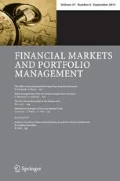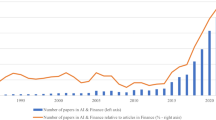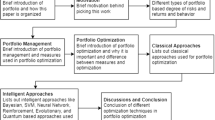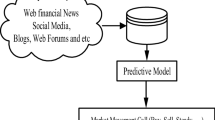Abstract
The tremendous speedup in computing in recent years, the low data storage costs of today, the availability of “big data” as well as the broad range of free open-source software, have created a renaissance in the application of machine learning techniques in science. However, this new wave of research is not limited to computer science or software engineering anymore. Among others, machine learning tools are now used in financial problem settings as well. Therefore, this paper mentions a specific definition of machine learning in an asset pricing context and elaborates on the usefulness of machine learning in this context. Most importantly, the literature review gives the reader a theoretical overview of the most recent academic studies in empirical asset pricing that employ machine learning techniques. Overall, the paper concludes that machine learning can offer benefits for future research. However, researchers should be critical about these methodologies as machine learning has its pitfalls and is relatively new to asset pricing.
Similar content being viewed by others
Notes
The author refers the interested reader to Gu et al. (2018) who provide a detailed description of machine learning tools for empirical asset pricing. These explanations start from scratch and cover the statistical model specification as well as programming guidelines of different methods. Furthermore, Dey (2016) reviews and explains different machine learning algorithms in detail.
References
Amilon, H.: A neural network versus Black–Scholes: a comparison of pricing and heding performance. J. Forcast. 22, 317–335 (2003)
Arnott, R., Harvey, C., Markowitz, H.: A backtesting protocol in the era of machine learning. Working paper, Duke University (2018)
Barr, J., Ellis, E., Kassab, A., Redfearn, C.: Home price index: a machine learning methodology. Int. J. Semant. Comput. 11, 111–133 (2017)
Bianchi, D., Büchner, M., Tamoni, A.: Bond risk premia with machine learning. Working paper, Warwick Business School (2018)
Brogaard, J., Zareei, A.: Machine learning and the stock market. Working Paper, University of Utah (2018)
Butaru, F., Chen, Q., Clark, B., Das, S., Lo, A., Siddique, A.: Risk and risk management in the credit card industry. J. Bank. Finance 72, 218–239 (2016)
Cawley, G., Talbot, N.: On over-fitting in model selection and subsequent selection bias in performance evaluation. J. Mach. Learn. Res. 11, 2079–2107 (2010)
Chiarazzo, V., Caggiani, L., Marinelli, M., Ottomanelli, M.: A neural network based model for real estate price estimation considering environmental quality of property location. Transp. Res. Procedia 3, 810–817 (2014)
Culkin, R., Das, S.: Machine learning in finance: the case of deep learning for option pricing. Working Paper, Santa Clara University (2017)
Das, K., Behera, R.: A survey on machine learning: concept, algorithms and applications. Int. J. Innov. Res. Comput. Commun. Eng. 5, 1301–1309 (2017)
Dey, A.: Machine learning algorithms: a review. Int. J. Comput. Sci. Inf. Technol. 7, 1174–1179 (2016)
Fama, E., French, K.: Dissecting anomalies. J. Finance 63, 1653–1678 (2008)
Feng, G., Giglio, S., Xiu, D.: Taming the factor zoo. Working Paper, City University of Hong Kong (2017)
Feng, G., He, J., Polson, N.: Deep learning for predicting asset returns. Working Paper, City University of Hong Kong (2018)
Freyberger, J., Neuhierl, A., Weber, M.: dissecting characteristics nonparametrically. Working paper, University of Wisconsin-Madison (2018)
Giglio, S., Xiu, D.: Inference on risk premia in the presence of omitted factors. Working Paper, Universtity of Chicago (2017)
Green, J., Hand, J., Zhang, X.: The supraview of return predictive signals. Rev. Account. Stud. 18, 692–730 (2013)
Gu, S., Kelly, B., Xiu, D.: Empirical asset pricing via machine learning. Working Paper, University of Chicago (2018)
Harvey, C., Liu, Y.: Lucky factors. Working Paper, Duke University (2016)
Harvey, C., Liu, Y., Zhu, H.:.and the cross-section of expected returns. Rev. Financ. Stud. 29, 5–68 (2016)
Hutchinson, J., Lo, A., Poggio, T.: A nonparametric approach to pricing and hedging derivative securities via learning networks. J. Finance 49, 851–889 (1994)
Hwang, T.: Computational power and the social impact of artificial intelligence. Working Paper, Cornell University (2018)
Keim, D., Stambaugh, F.: Predicting returns in the stock and bond market. J. Financ. Econ. 17, 357–90 (1986)
Kelly, B., Pruitt, S.: The three-pass regression filter: a new approach to forecasting using many predictors. J. Econom. 186, 294–316 (2015)
Kelly, B., Pruitt, S., Su, Y.: Some characteristics are risk exposures, and the rest are irrelevant. Working Paper, University of Chicago (2017)
Khandani, A., Kim, A., Lo, A.: Consumer credit-risk models via machine-learning algorithms. J. Bank. Finance 34, 2767–2787 (2010)
Koijen, R., Nieuwerburgh, S.V.: Predictability of returns and cash flows. Ann. Rev. Financ. Econ. 3, 467–491 (2011)
Kozak, S., Nagel, S., Santosh, S.: Shrinking the cross section. Working Paper, University of Michigan (2018)
Kumar, M., and M. Thenmozhi. 2006. Forecasting Stock Index Movement: A Comparison of Support Machines and Random Forest. Working paper, Indian Institute of Technology
Lewellen, J.: The cross-section of expected stock returns. Crit. Finance Rev. 4, 1–44 (2015)
Messmer, M.: Deep learning and the cross-section of expected returns. Working Paper, Universtiy of St. Gallen (2017)
Moritz, B., Zimmermann, T.: Tree-based conditional portfolio sorts: the relation between past and future stock returns. Working Paper, Ludwig Maximilian University Munich (2016)
Mullainathan, S., Spiess, J.: Machine learning: an applied econometric approach. J. Econ. Perspect. 31, 87–106 (2017)
Pesaran, H., Timmermann, A.: Predictability of stock returns: robustness and economic significance. J. Finance 50, 1201–1228 (1995)
Rapack, D., Zhou, G.: Forecasting financial variables. Handb. Econ. Forecast. 2A, 327–383 (2013)
Samuel, A.: Some studies in machine learning using the game of checkers. IBM J. Res. Dev. 3, 535–554 (1957)
Sirignano, J., Sadhwani, A., Giesecke, K.: Deep learning for mortgage risk. Working Paper, University of Illinois (2018)
Torous, W., Valkanov, R.: Boundaries of predictability: noisy predictive regressions. Working Paper, University of California (2000)
Turing, A.: Computing machinery and intelligence. Mind 49, 433–460 (1950)
Welch, I., Goyal, A.: A comprehensive look at the empirical performance of equity premium prediction. Rev. Financ. Stud. 21, 1455–1508 (2008)
Yao, J., Li, Y., Tan, C.: Option price forecasting using neural networks. Omega 28, 455–466 (2000)
Acknowledgements
The author thanks Prof. Dr. Manuel Ammann as well as Prof. Dr. Markus Schmid for their constructive and insightful comments.
Author information
Authors and Affiliations
Corresponding author
Additional information
Publisher's Note
Springer Nature remains neutral with regard to jurisdictional claims in published maps and institutional affiliations.
Rights and permissions
About this article
Cite this article
Weigand, A. Machine learning in empirical asset pricing. Financ Mark Portf Manag 33, 93–104 (2019). https://doi.org/10.1007/s11408-019-00326-3
Published:
Issue Date:
DOI: https://doi.org/10.1007/s11408-019-00326-3




